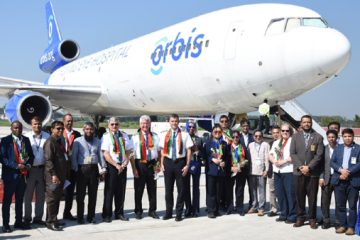3 more water treatment plants also to be installed, says its MD
The Dhaka Water Supply and Sewerage Authority has taken up an initiative to set up new pipelines in the city using the district metered area system to
ensure people’s right to drinking water from tap.
‘Dwasa with financial support from the Asian Development Bank has already started work in the city’s Banani and Ghulshan areas to set up pipelines using the DMA system. On completion of the work, illegal leakage in pipelines will be removed and we hope that city dwellers will be able to drink tap water,’ said DWASA managing director Taqsim A Khan on Tuesday.
The DWASA MD was talking to reporters at a views-exchange meeting at its office.
Claiming that now there is no water crisis in the city, Taqsim said the production capacity of DWASA now stands at around 242 crore litre a day against the demand for 213-225 crore litre.
Taqsim said the authorities concerned have taken up a long-term plan to go for surface water sources to meet the growing demand for water in the city reducing its dependence on groundwater.
‘Now about 78 per cent WASA water comes from groundwater source while only 22 per cent from the surface,’ he said, adding that DWASA has taken a plan to bring its 70 per cent water from the over-ground sources.
Taqsim said Dwasa would install three water treatment plants to increase its dependence on surface water sources.
‘The government has already signed an agreement with China to set up Padma-Jamuldia water treatment plant. The project will be completed within 36 months after its beginning. The plant’s capacity will be about 45 crore litres of water a day,’ he said.
Official sources said DWASA would bring water from Jamuldia point of the Padma and a water treatment plant would be set up in Munshiganj.
Meanwhile, the authorities concerned appointed a consultant to give advice on how to install the water treatment plant in the area.
Taqsim said DWASA with financial support from the ADB would set up Gandabpur power treatment plant. Besides, DWASA with financial support from Denmark government would start work to set up Sayedabad water treatment plant Phase-3 next year, he added.
He said DWASA did not face any trouble to supply water to the city dwellers in this dry season, and hoped it would not face any water crisis in the upcoming Ramadan either. ‘We have dual connections… hope there’ll be no water crisis during the Ramadan.’
About the city’s water-stagnation, Taqsim said once there were some 65 cannels in the city. But, all those have been grabbed, so rainwater can’t pass properly, which creates acute ‘water stagnation’ in the city. ‘We’re trying to protect the city’s remaining cannels to ensure that the rainwater can pass easily.’
He stressed the need for bringing the drainage management under a body to ensure a smooth drainage system in the capital.
About DWASA revenue growth, Taqsim said the DWASA raised its revenue to Tk 800 crore in 2012 from only Tk 300 crore in 2008.
-With New Age input




















